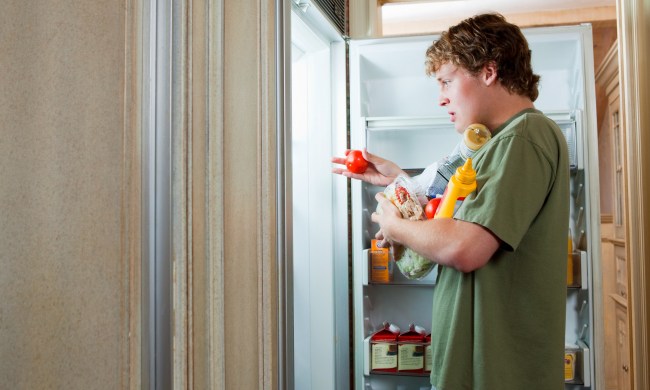Whether or not you decide to get your teenager the COVID-19 vaccine is a choice between you, your teen, and your doctor. But if you do decide to get your teenager vaccinated against COVID-19, we do want you to know about the potential side effects.
As with any vaccination, there can be some not-so-fun after signs that your body is building up protection against the virus. It’s always best to be prepared so your teen can feel as comfortable as possible. Let’s go over the COVID vaccine side effects in teens so you and your kid know what to expect.

Which COVID vaccine can your teen get?
As of right now, the vaccine that young people ages 12 to 17 can get is the Pfizer-BioNTech COVID-19 vaccine. Pfizer is one of the two options that are available as a 2-dose vaccine for everyone 18 and older.
According to the fact sheet about the vaccine from the FDA, it’s an mRNA vaccine, which means it uses a tiny, microscopic grease bubble to bring the information needed for your cells to fight the virus.
You’ll get one dose, wait 3 to 4 weeks to get the second dose, then wait another two weeks to be considered fully vaccinated. If you decide to get your teen vaccinated, there are some common side effects to be aware of. Letting your teenager know what to expect can help calm any nervousness about getting vaccinated. Let’s go over information about the side effects and some of the top ones you can expect.
Side effects in teens are similar to adults
From the basic side effects to the mild ones, the side effects teens will experience are the same ones that adults experience after getting the Pfizer vaccine. The American Academy of Pediatrics, the CDC, and the National Association of Pediatric Nurse Practitioners all state that “the common side effects are basically the same for all vaccines,” and that “teens experience the same range of side effects as adults do.”
Pain and swelling in the arm
This is pretty much standard for any kind of vaccination. From when you get your baby vaccinations to if you get the annual flu shot, you can expect this basic combo. The arm your teen gets the vaccine in might feel sore, painful to move, and have some swelling at the spot where the needle was inserted.
They might have these feelings for a few days. The discomfort might even be intense enough that your teen lacks full range of motion of the arm for a couple of days.

Headache and tiredness
Your teenager could have a headache for a bit and feel worn out. They might want to take a nap. They could feel sleepy and complain about a headache for a few days. If this persists past a few days, and you haven’t noticed your teen regaining their energy, you can talk to their doctor to make sure everything is okay.
Muscle soreness and pain
In addition to having pain at the spot of the injection, your teen could feel whole body aches. It’s best not to have them do anything rigorous for a few days after each injection. They could experience joint pain and have trouble moving around.
If it’s possible to get your teen vaccinated right before the weekend, that would be best so they don’t have to miss school if they feel bad. But if they do have to go to school the next day, be ready for them to ask to come home early.
Chills, fever, and flu symptoms
Unfortunately, these symptoms will likely occur for your teen. You can expect body chills, fever, and all of the fun that comes with flu, like nausea. If your child feels any of these symptoms within the first few hours of getting the vaccine, it’s best to have them stay home for a few days to let it run its course.

How to alleviate the pain
You can’t give your child regular pain relievers
The worst part for you as a parent is that the CDC recommends you not giving your child normal pain relief, like aspirin, to help deal with the side effects. Rather, the CDC recommends talking to your child’s doctor to find “a non-aspirin pain reliever and other steps you can take at home to comfort your child.”
If your teen says they don’t feel right, the symptoms last for longer than a few days, or they have side effects more severe than the usual suspects, it’s always best to take them to the doctor just to be safe.
Even though the side effects should only last 1 to 3 days, the time can feel extremely long for your teen. Every teen is going to be different. Even if your teen doesn’t have any effects after the first dose, it’s possible to experience multiple after the second. Or, it’s not uncommon for teens to develop symptoms after both.
It’s a good idea to know the side effects so even if your teen feels horrible, they’ll be assured that it’s all normal. And then, you and your teen will both feel a little more in control, knowing about the COVID vaccine for teens and the possible side effects.



